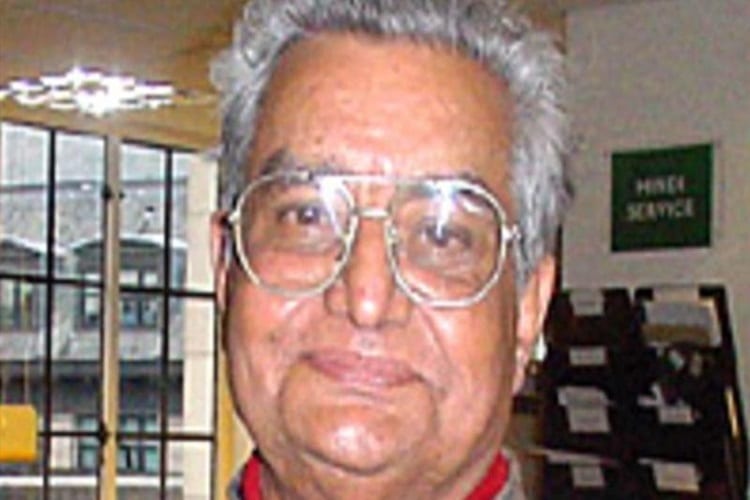Celebrating life and legacy of Manohar Shyam Joshi

Manohar Shyam Joshi (9 August 1933 – 30 March 2006) was a Hindi writer, journalist, and scriptwriter.
Life and Career
Manohar Shyam Joshi was born on 9 August 1933, in Ajmer.
Joshi pursued his education at Allahabad University, where he completed his Bachelor’s and master’s degrees in Hindi literature. His academic pursuits laid a strong foundation for his future literary endeavors.
After completing his education, Joshi embarked on a prolific career as a writer and journalist. He started his career as a journalist with the Hindi newspaper ‘Jansatta’, where he quickly gained recognition for his insightful writing and keen observations of society. His journalistic work often delved into social and political issues, reflecting his deep concern for the welfare of the common people.
He authored numerous novels, short stories, plays, and essays, all of which showcased his mastery over the Hindi language and his profound understanding of human nature. His works often explored the complexities of Indian society, touching upon themes such as tradition, modernity, caste dynamics, and human relationships.
Joshi’s literary talent was widely recognized, and he received several prestigious awards throughout his career. In 2002, he was honored with the Sahitya Akademi Award, one of the highest literary accolades in India, for his novel “Mitro Ki Mitra”. This novel, like much of his other work, was praised for its rich narrative, engaging characters, and insightful commentary on contemporary issues.
Throughout his life, Joshi remained committed to the promotion of Hindi literature and served as a mentor to many aspiring writers. His dedication to his craft and his contributions to Indian literature continue to inspire generations of writers and readers alike.
He died on 30 March 2006 (age 72 years), in Delhi.
Award and Legacy
In 2002, he was honored with the Sahitya Akademi Award, one of the highest literary accolades in India, for his novel “Mitro Ki Mitra”. This novel, like much of his other work, was praised for its rich narrative, engaging characters, and insightful commentary on contemporary issues.
Joshi’s legacy is evident in the impact of his writings on readers and fellow writers alike. His works, characterized by their rich storytelling, incisive social commentary, and profound insights into human nature, continue to resonate with audiences across generations. Through his novels, short stories, plays, and essays, Joshi explored themes that remain relevant to contemporary Indian society, including tradition, modernity, caste dynamics, and interpersonal relationships.
Joshi’s influence extends beyond his literary output. As a journalist, he used his platform to address pressing social and political issues, advocating for the welfare of the common people and highlighting injustices within society. His commitment to using literature as a tool for social change inspired many aspiring writers to follow in his footsteps.
As a mentor and guide, Joshi played a significant role in nurturing talent within the Hindi literary community. His encouragement and support helped shape the careers of numerous writers, ensuring that his legacy would live on through future generations of storytellers.
Observer Voice is the one stop site for National, International news, Sports, Editor’s Choice, Art/culture contents, Quotes and much more. We also cover historical contents. Historical contents includes World History, Indian History, and what happened today. The website also covers Entertainment across the India and World.
Follow Us on Twitter, Instagram, Facebook, & LinkedIn

